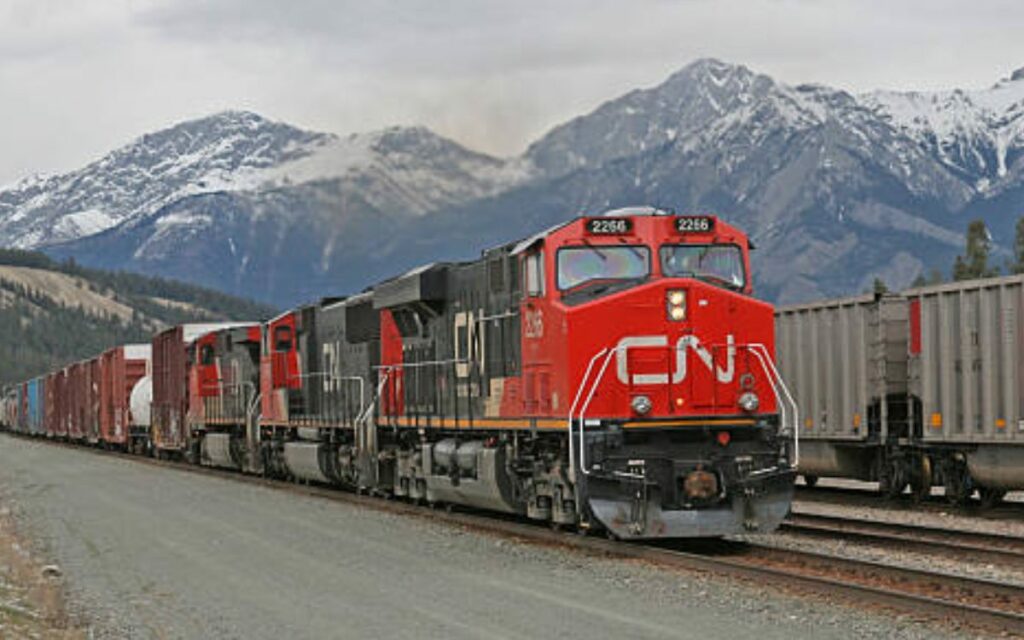
It is a distinct possibility that the new contracts will eventually have to be settled through binding arbitration. Photo Credit: iStock.
Canadian National Railway (CN) and Canadian Pacific Kansas City Limited (CPKC) are currently in the process of negotiating new collective bargaining agreements with their employees. While a stoppage has not yet commenced, the workers have voted to authorize a strike. If the railway labourers choose to withdraw their services in favour of the picket line, there could be significant consequences for continental trade and economic stability. With this in mind, it is a good time to analyze the big issues that are separating union and management, in order to get a sound handle on what might be coming down the pike.
The previous agreement between CN and CPKC with the Teamsters Canada Railway Conference (TCRC) expired on Dec. 31, 2023. However, for the past five months, the workers have been continuing to operate under the terms of the expired contract, in accordance with Canadian law. At this juncture, long negotiation sessions, containing numerous offers and counteroffers have already been exchanged. The original wedge issue was a proposal by CN and CPKC to move away from the traditional miles-based payment system in favour of a paid-by-the-hour mode of compensation. TCRC was adamantly against this initiative and made their position known on no uncertain terms. Management compromised and offered marginal annual wage increases while maintaining the miles-based payment structure.
The largest bone of contention between the companies and union is now over rest periods and shift length. CN and CPKC would like to pursue a bold modernization policy that they believe would increase operational efficiency, creating twelve hour calling periods during which employees could be asked to begin a shift at any time. TCRC is strongly opposed to this idea, arguing it would result in railway workers who have been awake since 7:00 a.m. being asked to begin a shift at 5:00 p.m.
The role of the Canadian Government in this dog fight is not insignificant. Federal legislation is being strengthened by new provisions in the Railway Safety Act that require a minimum rest period of twelve hours for employees in their home terminal, and ten hours while away from home. Management has thus far expressed confidence that their proposals will not violate these statutes. The union, however, believes otherwise.
The federal government has also become extremely concerned by the threat of a strike, which it is widely believed would cause unprecedented disruption to essential economic activity, particularly food supply chains. With this apprehension in mind, Federal Labour Minister Seamus O’Regan has requested that the Canada Industrial Relations Board (CIRB) determine whether the strike could impact safety. It is expected that picketing will not begin prior to the board rendering a decision on the matter. Moreover, TCRC has been pre-emptive in confirming that it will act in accordance with any ruling that the Board may deliver.
Unsurprisingly, the government has been the subject of criticism from the business community, which argues it has not been strong enough in supporting the railway, and from labour activists, who believe that the union could be stripped of an all-important tool of leverage for negotiations. Liberal Prime Ministers have long attempted to play both sides of the fiddle, as it relates to business and labour. In fact, the Rt. Hon. William Lion Mackenzie King may have followed an identical script during his Premiership several decades ago. Championing a position of moderance regarding business and labour has been a key reason that the federal Liberals have maintained their status as the natural governing party for generations.
Taking all of the relevant information into account, it is now possible to make some educated projections about where the latest dispute between CN/CPKC and TCRC is headed. It is likely that TCRC would seek to utilize their overwhelming strike mandate (97.5 per cent) if they believed it was economically feasible, politically viable and legally wise to do so. However, the growing involvement of the federal government and CIRB would indicate that TCRC will face mounting opposition to withholding their members’ labour, since doing so would risk dramatically worsening an already faltering economy during the hot summer months. None of this is to say, however, that the two sides will be able to negotiate new collective bargaining agreements without third party intervention. It is a distinct possibility that the new contracts will eventually have to be settled through binding arbitration.

Nick Redekop completed his Honours Bachelor of Arts Degree in Labour Studies at Brock University. He has previously served in municipal and federal politics. In his free time, Nick enjoys following sports, taking part in outdoor activities, and reading biographies. Nick resides in Niagara Falls




















